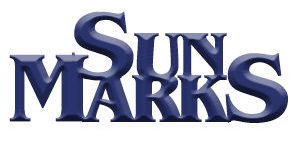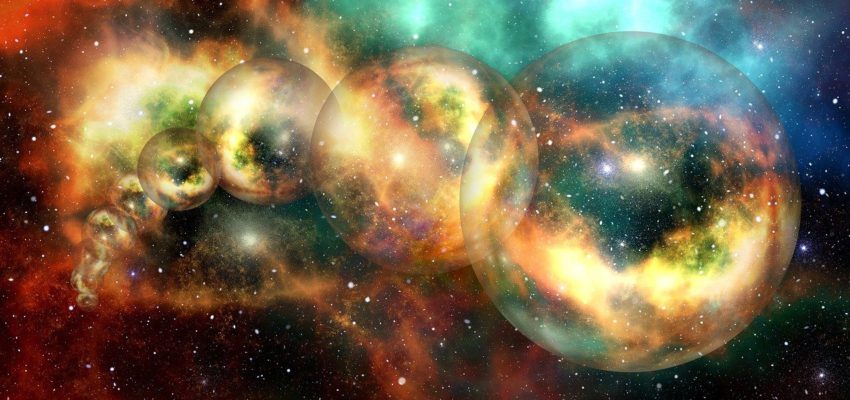When Randy got back from getting his Nobel Prize, what was the first thing he wanted to show me? The medallion? The check? Him in a tux trying to give a speech? No. “Patty—you’ve got to see this—they interviewed me. Me. They cut it down to only a few minutes for broadcast, but she put the whole thing up on YouTube.”
“OK—wait a minute,” I said. “First things first. ‘She’ who?”
“Heather Kelley—the reporter who interviewed me. We talked for about an hour on camera, then we went out after. It was amazing how much she knew about my work—”
“Randy, look. It’s called ‘research.’ If they’re going to send someone all the way to Sweden to interview you—”
“Look, do you want to see the video or not?”
We were out at my house in Waltham—I’ve got a wall-sized LED on the far wall (I watch with sound off when I’m mixing audio—distracts my eyes so my ears can work). So we pulled up the Tube video, shunted it to the big screen, and ran the audio through my studio monitors.
And when Randy explained all this to me—by way of asking if I’d do this one really big favor for him—I thought to ask, “So, what is it with this Heather woman, anyway?” And that’s when things got strange.
And there it was. Heather Kelley—as if you couldn’t tell from the name—in life-size HD—very Irish. She was a good interviewer, too. I could tell, the way she was pulling Randy out of himself for the interview. I mean, I’d been interviewed enough in my day. But I could see Randy, sitting in my studio, watching the video. And I don’t think he thought that’s all it was.
They sat in one of those faux living rooms, facing each other in comfortable chairs. The video wasn’t entirely raw—the sound had been worked on (I could obviously tell) and they’d put “the crawl” across the bottom, feeding news from the 12 of December, 2023.
“So can you explain to everyone out there about the work that you did that the Nobel Committee chose to honor?”
“We’d had this idea,” Randy, on the video, said. “You know about the uncertainty principle, right? So I wanted to see if I could track a particle by both entangling it and then tracking the original particle and the entangled particle separately. When we got contradictory results, I thought the particles got disentangled. And then Sally—my grad student—looked at the results and said, no, dummy, it’s what you’d get if you pulled in a particle from somewhere else. Then we did the math, wrote it up, and a few others reproduced the experiment. And—except for some complicated wave math, that’s it.”
“And how do you do that?” she asked.
“You triangulate the particles—three lasers, magnetic bottle—kind of technical.”
“So how soon before we’re stepping into alternate realities?” Her eyes twinkled—I’m convinced she could do it on command.
Randy paused, looked at his hands. “That’s just science fiction—really—we’re just dealing with photons and electrons. Not people.”
She gave a condescending smile—like she should condescend to a Nobel laureate. And she said, “Well, if you did go to another universe, would anybody know?”
Randy, to his credit, gave a condescending smile right back. Probably, I thought, he was used to getting those kinds of questions when he did parents’ weekend or intro classes. He said, “The you in the other universe wouldn’t have any idea. Only the person who actually moved between realities would know.”
And that was that. For a little while, anyway. Later, I thought, I should have seen it—I could have put some of the pieces together. But I actually had a life to attend to. Or a career. Or a wound-down career, at any rate. At least, that was the perspective of my agent.
A long time ago—Was it that long ago? 10 years, I guess. 10 years ago, I was 25. And I’d written a number-one album. The album took 10 years to write—they were the best years of my life, Billy Joel would say—I started on the family upright when I was fifteen. Hooked up with some people at college—one had an expensive interface and DAW, another had a killer voice. We made a few demos and sent them around, played a few gigs, and, I thought, that would be that.
But when I graduated, I had a contract. I got co-producer credit, though I did almost all the work—including about 90% of the instruments and about 70% of the engineering. The album went platinum. And I found that I couldn’t write music—well, not good music—on command or on schedule. And I found it easy to live comfortably off of the interest on my royalties (I invested heavily in munis). But the kicker was that the guys at the label knew who’d really produced the record. And even though I suffered writer’s block, I get constant production work.
So that’s what I do. Conservatory-trained ears, and I try to add a little depth to the recordings of four-chord wonders.
Anyway, for the next few weeks I only heard from Randy by Internet. I was locked down, producing some sessions for a supposedly up-and-coming local band for nearly a month. So when I finally got a break, I decided to swing by Randy’s lab at MIT.
I found him sitting at his computer in the lab, so distracted he didn’t hear me come in. I snuck up behind him, to read his screen over his shoulder. And the first thing I saw was the 9×12 glossy of Heather Kelley propped up on his desk. Autographed, no less—“With luv, Heather.” Gotta love that—a journalist who can’t spell.
“So, what’s this?” I asked.
He jumped. “God, Patty—don’t do that!”
“Well, if you were paying more attention to the world around you… So, what exactly is it that’s so snared your attention?”
“My next project,” he said. “See if we can swap more than one particle at a time. Maybe even a macro-sized object.”
“And in English, that means…?”
“Bringing in a clump of dust from a different universe to this one. Which also as a consequence means sending a clump of dust from this universe to the other one.”
And at about this time, not only was I trying to rescue the debut recordings of three new discoveries, but I’d found that I was actually becoming able to piece together my own songs. It’d been about ten years—that was about right, I figured. So my attention was fixed elsewhere most of the time. Otherwise I might have noticed how often and with how much fascination Randy talked about Heather. Or about how much time they seemed to spend together. Especially considering that Heather was engaged.
And that, I’m sure, I didn’t know until too late. And I’m sure I wouldn’t have known, even if I’d been paying attention, because Randy wasn’t about to tell me until it turned out that he absolutely had to. Because Heather’s fiancé had been paying attention. And said fiancé—a retired halfback for the Patriots—had noticed his fiancée hanging around with this nerdy scientist, and had gotten suspicious. So Randy, to save his skin, told them he had a girlfriend—namely, me. And wouldn’t they love to meet me.
And when Randy explained all this to me—by way of asking if I’d do this one really big favor for him—I thought to ask, “So, what is it with this Heather woman, anyway?” And that’s when things got strange.
“Patty—I don’t know. I’ve never felt like this before—about anyone.”
We were walking from Randy’s office—on the promenade along the Charles in front of MIT—on our way to meet Heather and Jack for dinner. They were sending a limo for us—we were supposed to meet the car just off campus.
“You know,” I said, “generally speaking, it’s good form—if you’re going to fall in love—to fall for someone who isn’t already involved.”
“I know. But I don’t know if I had a choice. And if she’s so in love with him, how come there’s anything between us?”
I stopped short, and turned on him. “What do you mean? For one thing, there isn’t anything between you—”
“There is. When we’re together.”
“You think that because you think you feel something, that it’s because she feels it too?”
He looked at me as if I’d just said something incredibly, stupidly obvious—like, “you mean the Earth is an oblong spheroid?”
“Shouldn’t that be obvious?” he asked. “I mean, if not, then where is it coming from? Doesn’t this ‘chemistry’ have to be mutual?”
Oh, Randy… “Randy—if that were true—there’d be no such thing as a broken heart.” And I started walking again.
He fell a little behind, apparently, I guess, giving that some thought. Anyway, I got to the car first. He caught up, the driver let us in, and we were off.
The car was nice, and new. Not the fanciest limousine I’d ever been in, but still. It had the new car smell—and you could still smell the new leather from the upholstery. The last time I was chauffeured around like this was to and from concerts. The smell—the leather—brought that back. And in a way, I thought, although not a concert, this evening was a type of performance, too.
I looked over at Randy. He was fiddling with his hands—the way he does when he’s nervous. Though I can’t believe I know that.
I’ve known Randy virtually all of my adult life. We were hall-mates, Freshman year at Tufts. Though, we didn’t get to know each other until almost the end of finals, first semester. I was in the joint program with the New England Conservatory, and Randy… Well, I guess he spent most of his time in the library, or the lab, or somewhere studying. Not only is he naturally brilliant, but he works—hard. Harder than I ever worked at anything.
Anyway, the first time either of us had any significant time to hang around our rooms was after our tests were finished. And most of the floor had already left for winter break. So one night I went to the lounge to watch TV, and Randy was already there. And we started talking—and kept talking literally all night. And we’ve been… whatever it is we are… ever since.
The car pulled up at a trendy hot spot near the Hines Center. Heather and Jack were already there, waiting for us. They looked good—they both looked good. And they looked good together. Heather wore green—which I’d notice later went with her eyes. Jack was tall. With a tousle of sandy hair. With nice eyes. And a nice chin—good cheekbones.
We went in, and got settled. Randy on my left, Heather on my right. And after they took our order, Heather turned to me, and said, “So you’ve been together since college?”
“Uh…” I said. “We’ve known each other since college. This… this is rather… recent…”
“Oh, I see,” Heather said. “With Jack and me, it was love at first sight. Wasn’t it?” she asked him.
“And how did that happen?” I asked.
“Well. I drew what I thought would be a boring assignment—a human interest interview of some jocks—”
“Hey!” interjected Jack.
“Sorry, sweetie. You know I didn’t mean it that way. Anyway, these athletes were volunteering community service—working with troubled youth, etcetera. And Jack was one of them. And the rest, as they say, was history.”
“And how long is that history?” I asked.
“Huh?” Jack asked.
I resisted the impulse to repeat the question slow and loud. Kind of like shooting fish in a barrel, I thought. “What I meant was,” I said, “was how long have you been together?”
“Oh. A little more than three years,” Jack said.
Our first course was served—I’d gotten a French onion soup—big round crock, bread melted over with cheese. Randy ate bread. Jack got oysters, or clams, or something in a shell. Heather, of course, ordered a salad. And halfway through the salad, she excused herself.
When she’d gone, Jack turned to me. “So, you’re really the Patty Glaser? From Dream Ark? I was a big fan.”
“Thanks,” I said, a little sheepishly.
“I must have played that album a million times. My favorite on the album was one of the ballads—‘Unrequited.’ Did you write that?”
“Yes,” I said. “Yes, I did.”
He got a wistful look in his eye. “I lost my virginity to that song.”
Great. Wonderful. Thanks. Over dinner. That was an image I just really didn’t need.
“Excuse me,” I said, “I think I need to visit the ladies’ room as well.”
——
Read the rest of the story in Earthrise and Other Stories available now!




